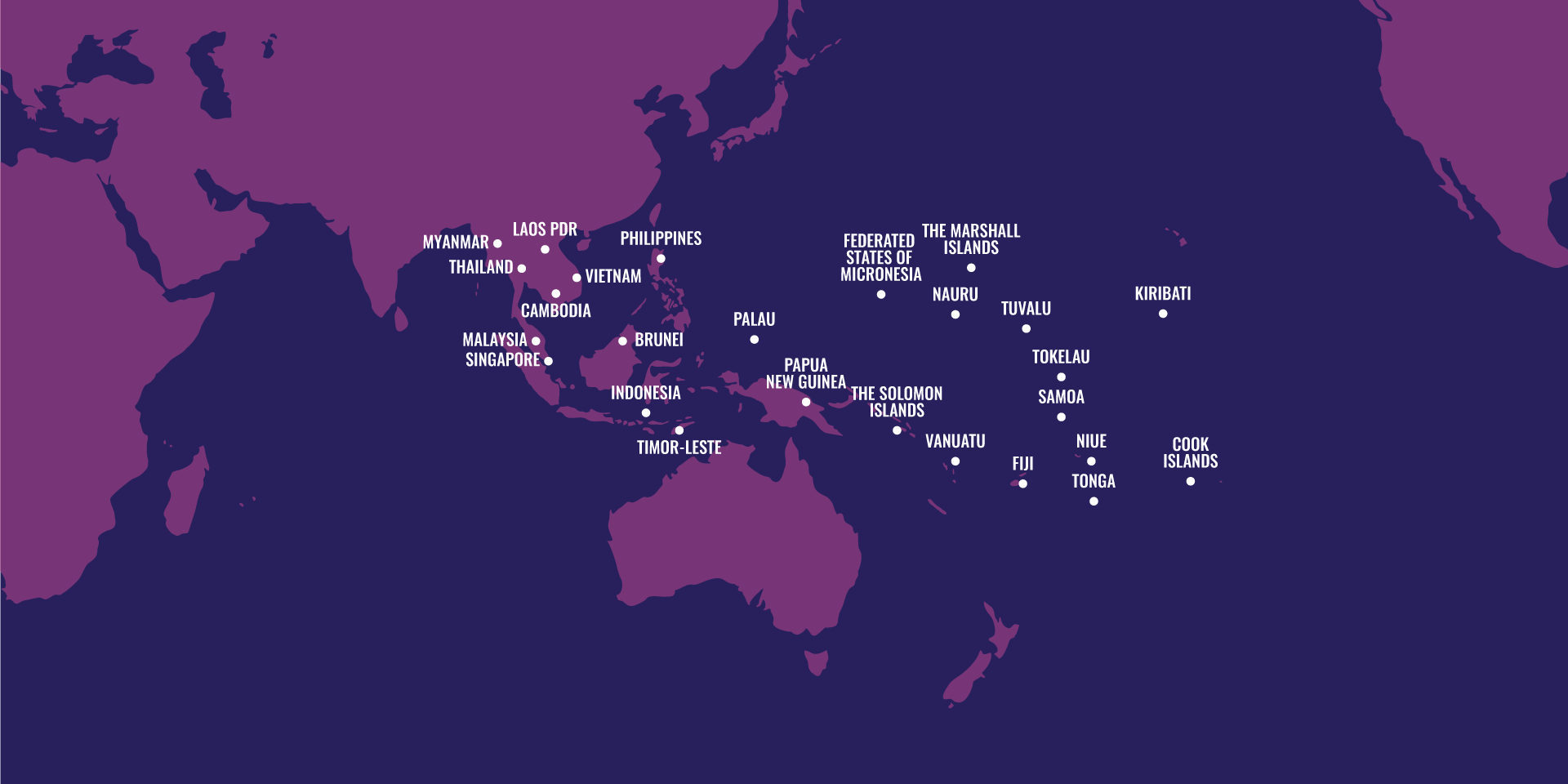Australia is committed to working with countries across the Indo-Pacific to champion a safe, secure and prosperous region by strengthening collective cyber resilience.
The Southeast Asia and Pacific Cyber Program (SEA-PAC Cyber) supports a cyber resilient region through:
- enhancing cyber security and critical technology capabilities;
- strengthening cyber incident preparedness and response; and
- supporting development of national and regional cyber policies, norms, standards, laws and regulations to reflect an open, free and secure cyber ecosystem.
Southeast Asia and Pacific Cyber Program (SEA-PAC Cyber)
Between 2016-2024, under the Cyber and Critical Tech Cooperation Program (CCTCP), DFAT funded 156 cyber cooperation and capacity building initiatives worth $71.9 million in 24 ODA-eligible countries the region to uplift cyber resilience in the region.
DFAT has refocused CCTCP to provide more targeted, impactful and sustainable capacity building initiatives for enduring cyber resilience in Southeast Asia and the Pacific to ensure regional governments are better positioned to prevent and respond to cyber incidents.
Under SEA-PAC CyberDFAT continues to support partner countries to build and enhance their cyber capacity, including:
- partnering with the US in Palau to provide support following cyber incidents in early 2024. Australian support includes a vulnerability assessment on key parts of Palau's Government network and provision of a private sector expert as a Cyber Security Advisor;
- delivering cyber security exercising in countries across the Pacific and Southeast Asia, to improve incident response resilience and the knowledge and capability of participating governments;
- strengthening cyber capability in Laos through partnering with its government to enhance cyber incidence response, uplift cyber awareness and training of its workforces, and build cyber security resilience;
- supporting women from across the Indo Pacific to attend meetings of the UN Open Ended Working Group on Cyber (OEWG).
Gender Equality, Disability and Social Inclusion (GEDSI) Strategy
DFAT is committed to ensuring that all its investments and diplomatic activities progress GEDSI outcomes, in line with the Australian Government's international commitments to sustainable development, gender equality and disability rights.
SEA-PAC Cyber takes a twin-track approach to GEDSI strategy, mainstreaming inclusion as well as providing specific targeted interventions to prevent unintended harm and further marginalisation as well as ensuring the equitable distribution of opportunities and benefit.
Various initiatives have been established under the "Women, Peace and Cybersecurity" projects across the Indo-Pacific. These address knowledge gaps and build capability to strengthen the cyber security posture of women's civil society organisations and human rights defenders.

